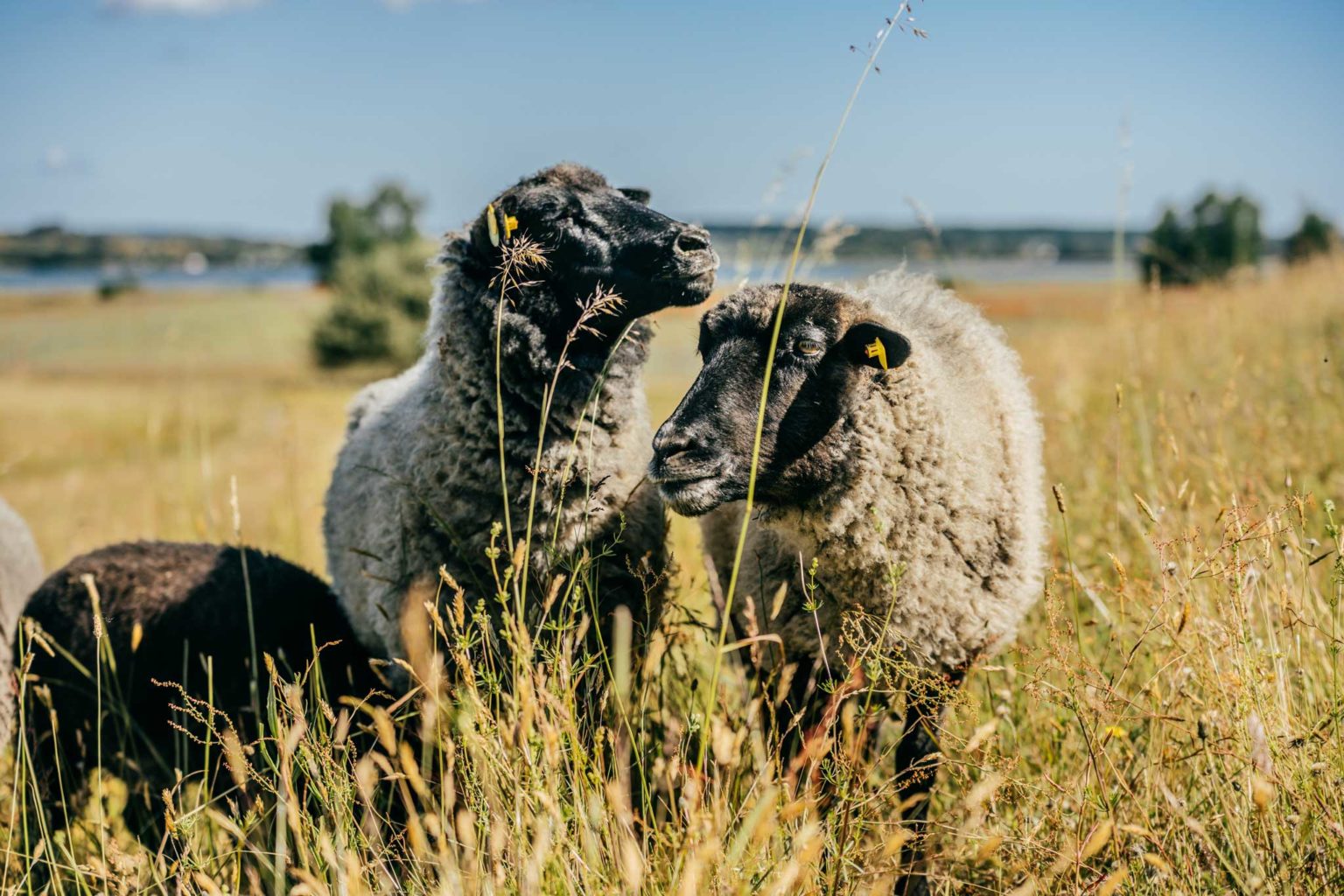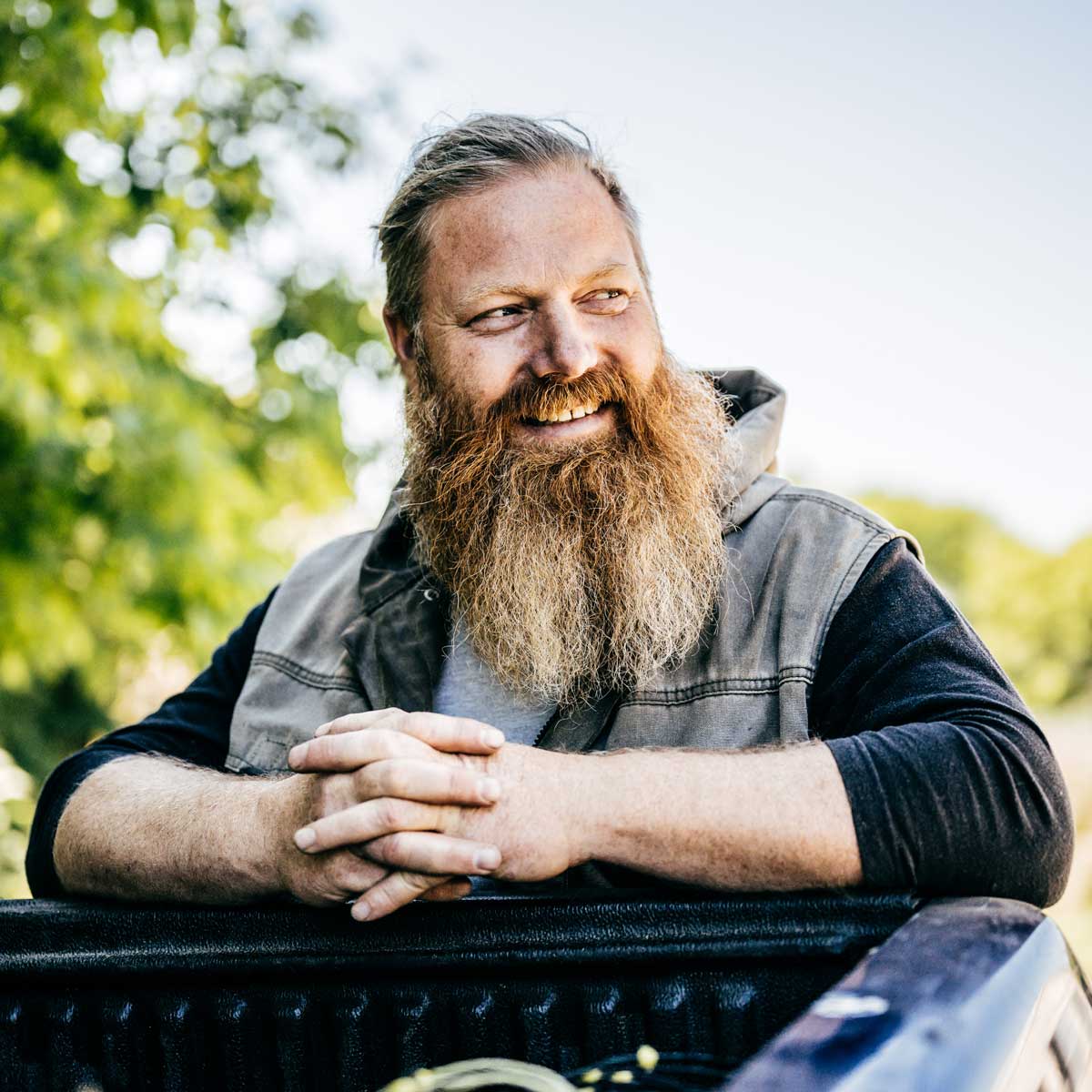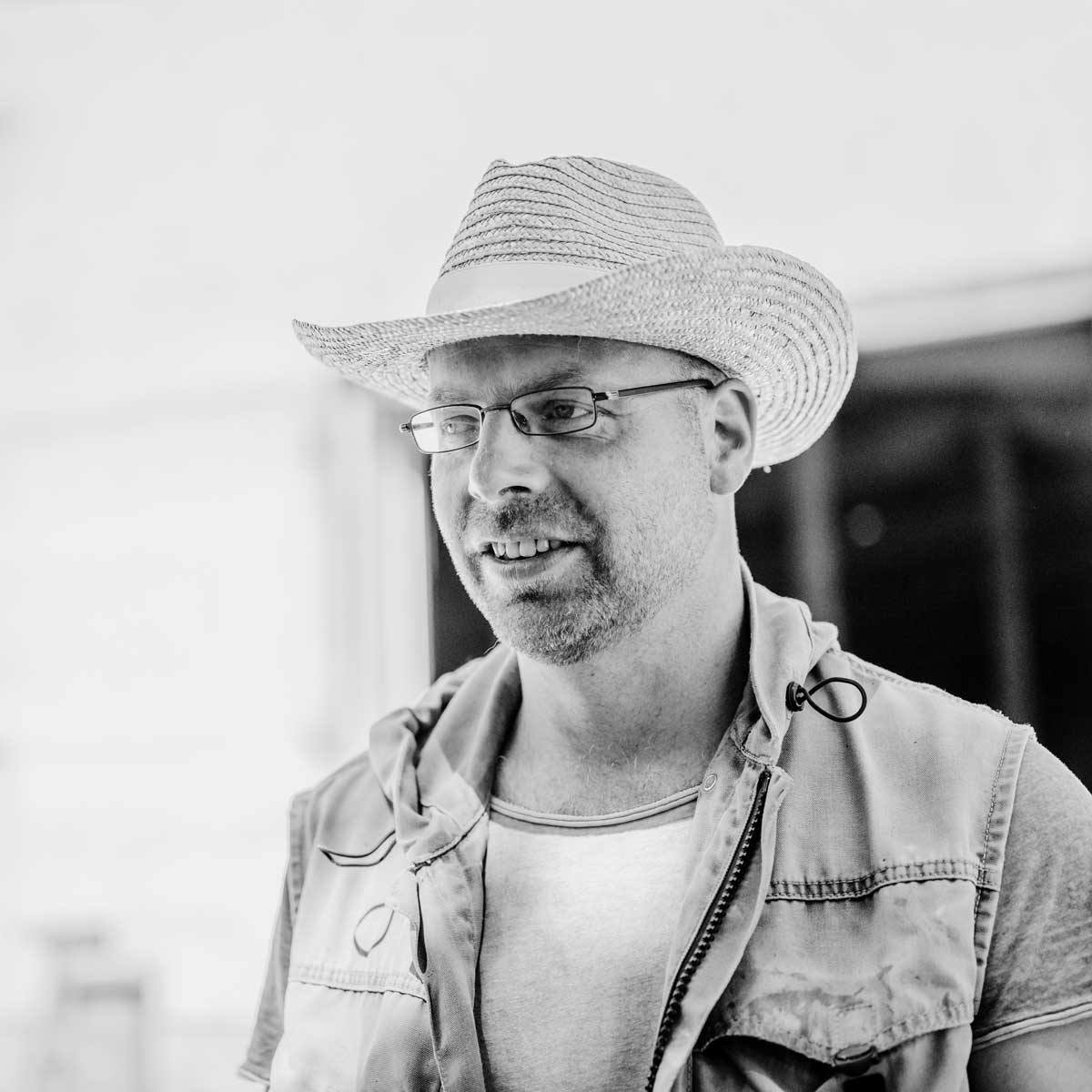
Christian & Frank Westphal Shepherd Stories
In the middle of the biosphere reserve Southeast Rügen lies the Mönchgut - this enchanted peninsula, which has something of everything to offer. Here you can find water and vastness, flat meadows, but also hills, a lot of forest and after the summer the pure silence. When the tourists have gone home and the inhabitants are alone again, a certain relaxedness engulfs over the people; among the first people to enjoy the relaxedness are our shepherds Christian and Frank Westphal from Groß Zicker.
They live and work on the Zickerschen mountains in the southeast of the island of Rügen. Several generations of the Westphal family have been farming here. To be more precise, since 1889, when their ancestors started keeping and breeding sheep. The father of the two shepherds founded the present company in 1989 as a sole proprietorship and in 1996 it officially became a sheep farm.
Frank and Christian have always been in the barn with the black lambs of the Pomeranian sheep since they were little children. Since the family has always been a farming family, the question of another career aspiration did not arise at all for Frank. But Christian first completed an apprenticeship as a cook. After that, he went on to do another apprenticeship as a butcher, because he thought he might then be able to take over the direct marketing of the animals from the sheep farm and for various reasons, however, this did not happen.
In 2015, unfortunately, the father of the two died and they founded a private partnership company together. Since then, they have continued to work side by side on what their father created and left them.
Christian loves the variety that one experiences in this profession. Every day is unpredictable, the seasons set some rhythms, but no two days are the same. As soon as the meadows green up and there is enough feed, the sheep come out to pasture. The shepherds then have to check the flock daily. Are the animals healthy? Is there enough drinking water on the area? Are the fences all in one piece? After that, they go about other business such as harvesting fodder in the summer.

In the summer especially, when there are more tourists who like to walk into the paddocks or even kick over the fences because they want to go in means that we have a lot more work then. Regular checks are necessary because we have a neighbouring farm and if the sheep then break out and mix, that would be a big mess for all. Just from the time factor alone because when everyone is in the feed harvest, every hand is needed there.
Christian Westphal
What the two shepherds like about their job is that the work is very relaxed. Although the individual tasks are sometimes physically demanding, there is no one behind them to tell them what to do. Compared to the restaurant business, Christian says, the mental pressure is gone here.

"NO TWO DAYS ARE THE SAME. FROM MORNING TO NIGHT, THERE'S ALWAYS TIME FOR YOURSELF OR FOR YOUR FAMILY. AND THAT'S SUCH THE RELAXED NATURE THAT COMES WITH THE JOB."
FRANK WESTPHAL
THE CHALLENGE
Westphal Sheep Farm is a classic landscape maintenance operation. That means they have to consider various factors when grazing as part of their designated landscape maintenance programs. For example, at what times they allow the sheep on some areas and how many animals in a particular area may be grazed, the so-called animal rotation grazing. The grazing management must be organized in such a way that the shepherds have enough feed for the sheep, but that there is also enough time between the individual grazing rounds. This work that has to take place in advance in the office so that it then works outside.
They have become accustomed to all the other challenges in the shepherding profession and in their region it's the same every year. In the summer, the tourists come; in the winter, they're on their own.

"I FIRST TRAINED AS A COOK. THEN I LEARNED TO BE A BUTCHER, FOLLOWING THE IDEA AT THE TIME TO MARKET THE ANIMALS MYSELF SOMEDAY. BUT IT NEVER TURNED OUT THAT WAY. AND THEN, UNFORTUNATELY, OUR FATHER PASSED AWAY IN 2015. THAT'S WHEN I JOINED THE COMPANY, BECAUSE I ALWAYS ENJOYED IT.
CHRISTIAN WESTPHAL
WHY NORDWOLLE?
When Marco first came to the farm - at that time to Frank and Christian's father - the Nordwolle project was still a bit half-baked. They were skeptical but not long after, Marco convinced the two Poken brothers to give their wool to him. In the meantime, they are die hard Nordwolle fans. Besides, the wool market has plummeted in recent years, so the purchase prices of Pomeranian wool were naturally tempting.
When you then hear from Schwarzkopf breeders that for a short time wool was 13 cents for a kilo, you say to yourself: "We breed the Pomeranians; we did everything right." In the years before, wool was also up to 1.10 euros per kilo for the white wool and at that time, the grey wool was buried in the dung heap because no one wanted it. We marketed a small part of it ourselves and had it spun, and our mother sold some of it to ladies who were willing to spin.
Christian Westphal
On the meager and dry grassland of the Zickersche mountains, one would cause a lot of damage with heavy technology. The steep hills with very steep slopes would not be maintainable with machines, so the sheep are perfectly at home at the tip of the Mönchgut peninsula. Here they have always been at home. And here, thanks to Frank and Christian, they will be at home for a long time to come.
"The special thing in winter is the quietness in the barn, especially at night when the lambs come. This relaxedness of the animals when you pick the lambs up."
Christian Westphal
